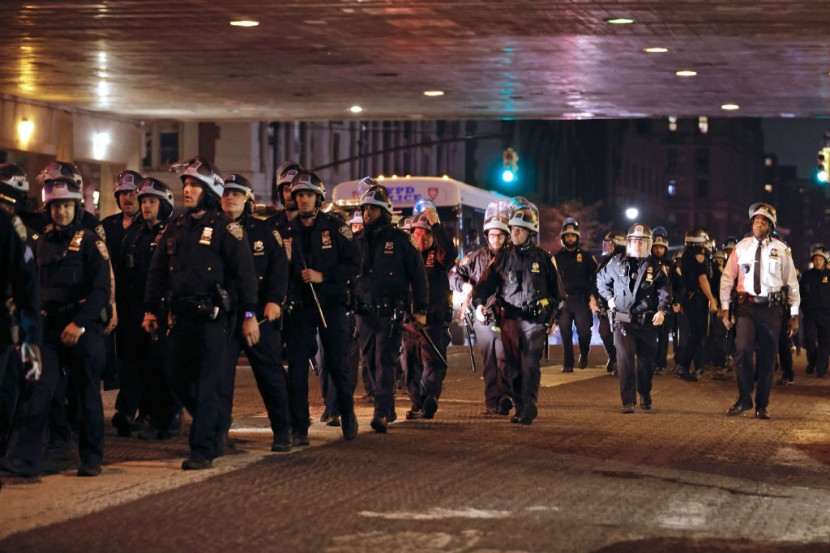
The New York Police Department threatened to arrest several members of the Columbia Journalism School faculty - including Dean Jelani Cobb - while they sheltered in the university's Pulitzer Hall, as police raided Hamilton Hall and arrested individuals occupying the academic building.
The NYPD's threat to arrest was first reported by Columbia student journalists, who were reporting on the police raid for the student radio station WKCR.
The students alleged that they received an email from the university administration, advising that they shelter in place at 8:18 p.m. but were given no guidance on where to go. Though they were Columbia students, they did not live on campus and were unable to access dormitories in which they did not reside.
The NYPD entered the Columbia campus at the request of university President Minouche Shafik, who asked that law enforcement remain until May 17 - two days after the university's scheduled commencement date. This was in response to protestors - at least some of whom are Columbia students, threatened with expulsion - allegedly sneaking into Hamilton Hall after hours and taking control of the building.
"Protesters chose to escalate to an alarming and untenable situation - including by vandalizing property, breaking doors and windows, blockading entrances and forcing our facilities and public safety workers out" university spokesperson Ben Chang said in a Tuesday evening statement.
"We are responding appropriately as we have long made clear we would. The safety of our community, especially our students, remains our top priority."
By 10:26 p.m., the WCKR reporters were sheltering inside Pulitzer Hall with members of the journalism school faculty - including Cobb, a staff writer for the New Yorker. The Columbia students allege that the police told them if they exited the building they would be arrested. This was confirmed by journalism school employees.
"Dean Jelani Cobb was in Pulitzer Hall, supporting the free practice of journalism, when the NYPD entered campus," Cobb's Chief of Staff Daniel Rivero told HNGN in an email.
"Many of our students who have been reporting on the campus protests were also in the building, under the watchful guidance of Columbia Journalism School faculty. Dean Cobb and the faculty were instructed by the police to remain inside Pulitzer Hall during their operation or face the possibility of arrest."
The Columbia student journalists alleged that they were never directly told that police would be on their campus. Rather they were instructed to shelter in place and subsequently received an email with an attached letter from Shafik to the NYPD.
"The events on campus last night have left us no choice," Shafik wrote in the letter to Michael Gerber, the NYPD's Deputy Commissioner of Legal Matters.
"With the support of the University's Trustees, I have determined that the building occupation, the encampments, and related disruptions pose a clear and present danger to persons, property, and the substantial functioning of the University and require the use of emergency authority to protect persons and property."
Discord between the Columbia student activists and the university administration has raged for two weeks - since students first erected the Gaza Solidarity Encampment on the university grounds. The student protestors are calling for divestment from Israel, transparency into the college's finances and amnesty for all students involved in the activist groups.
The politics of the encampment have been subject to intense scrutiny from the beginning - there were Jewish activists involved in occupying the lawn and participating in associated activist groups. Students and faculty members even celebrated a Passover Seder inside the encampment.
Some, however, allege that the activism has led to a spike in on-campus antisemitism - with at least one rabbi associated with the university urging Jewish students to return home. Columbia Students for Justice in Palestine and its members have made repeated public statements asserting that Jewish students are a welcome part of their movement and that their issues are with the Israeli government and the university's administration.
The Columbia campus - which was already restricted to people with university IDs and others let on campus on a case-by-case basis - is now solely open to students who reside in one of the seven on-campus dorms and staff members performing essential functions. The only point of entry on campus is the 116th Street and Amsterdam gate - while other gates will remain locked, according to the Columbia website.








